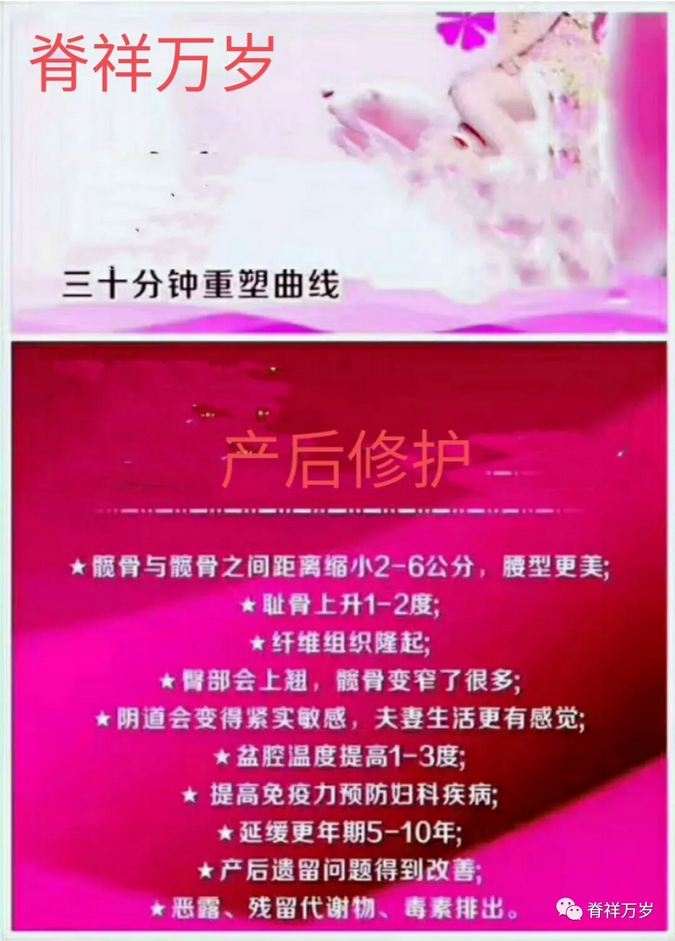
Service hotline:
13533607738
18602592233
Welcome to 广东脊祥万岁健康管理有限公司!
最新资讯
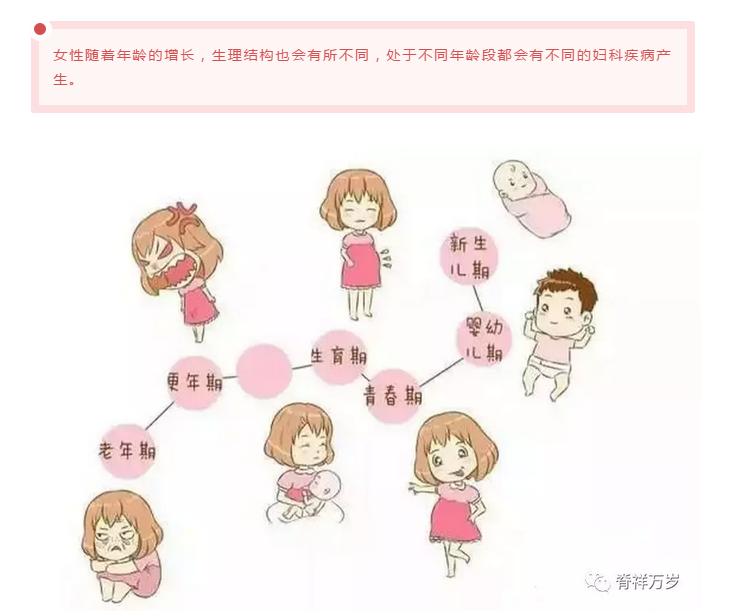
Women's life can be divided into neonatal period, infant period, adolescence, childbearing period, menopause and old age. Neonates seldom suffer from gynecological diseases, infants and adolescents have similarities, menopause and old age have similarities, so adolescence, childbearing and menopause are the main longitudes, and then the main diseases are the latitudes, showing the characteristics of each "region".
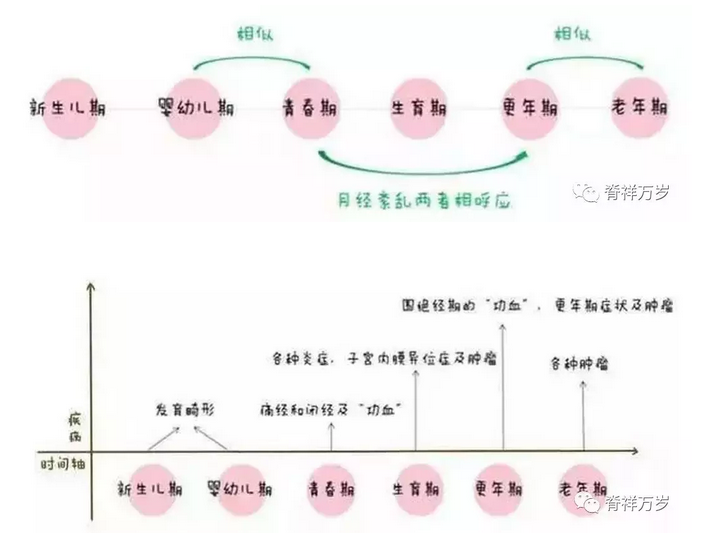
Few gynecological diseases occur in the neonatal period, and there are three special periods in which women are most susceptible to gynecological diseases. Therefore, adolescence, childbearing period and menopause are the main periods to build a "map of gynecological diseases for women".


Puberty
Female body estrogen increases, secondary sexual characteristics and accelerated growth, menstruation, ovarian function gradually improved. Adolescence is most likely to expose congenital malformations and developmental disorders.
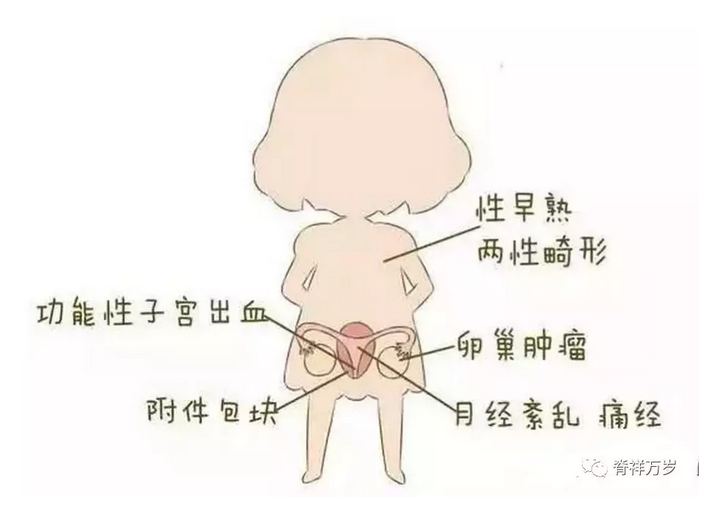
Growth period
Females in childbearing period have experience of sexual life and even abortion. Many bacteria can enter the uterus from the vagina and cause inflammation. Therefore, vaginitis, cervicitis and adnexitis are common at this time.
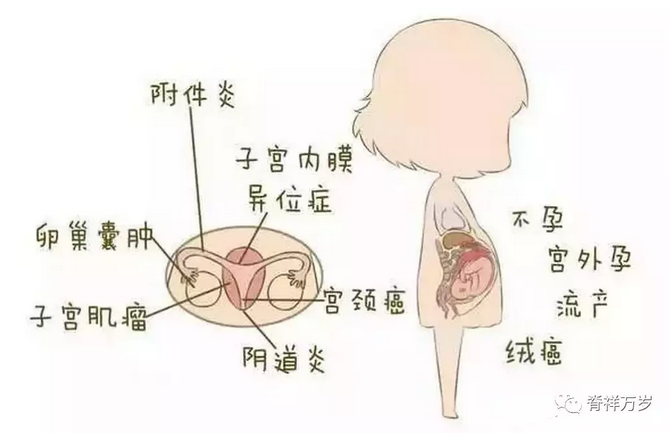
The menopause
Menopause is prone to ovarian dysfunction, perimenopausal symptoms are prominent, such as shortness of breath, osteoporosis, irritability, abdominal and hip fat increase, easy to gain weight and so on.
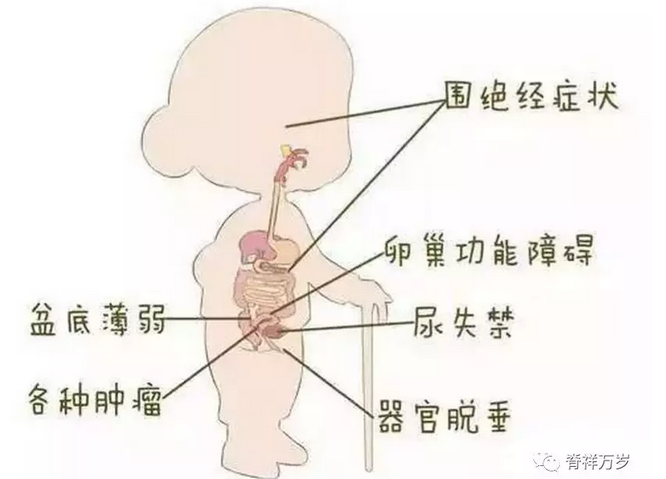
Common characteristics of gynecological diseases
■ blood
If there is abnormal vaginal bleeding, menstrual cycle disorders, menorrhea or too little or even amenorrhea, may be health problems. Normal regular menstruation is an important sign of women's health. If postmenopausal bleeding occurs again, you must go to the hospital for examination.
■ belt
Usually what we call leucorrhea refers to women's vaginal secretions, but these "bands" need our vigilance:
Too much or too little secretion; the secretion of foamy and fishy smell may be vaginal diseases; cheese like secretions are characteristic of Candida infection; the water pattern may be a fallopian tube problem.
Blood leucorrhea should be paid special attention to!
■ pain
When the lower abdomen or pelvic cavity, waist, anus and perineum and other parts of the pain needs attention.
Below pelvic inflammation abdominal pain, low back pain mainly. 80% of patients with endometriosis have pelvic pain, lumbosacral pain, and even sexual pain. Reproductive tract tumors can cause pain due to compression and rupture. Some malignant tumors can cause pain, any pain should not be underestimated!
■ block
There are benign and malignant tumors. The tumors you can touch are usually larger. From the vulva to the abdominal cavity of the uterus, ovary, may grow tumors, some inflammation will also form a mass.。
For conditioning, please contact Taiwan's traditional soft manipulation global chains, no knife, no surgery, no injection, excellent repair of traditional Chinese medicine, safe and effective.
